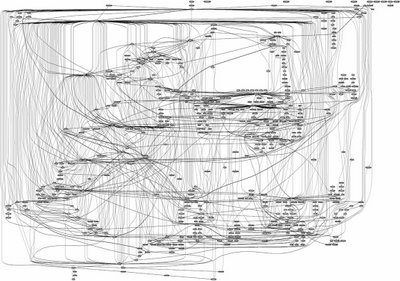Excellent piece of writing today from Jeff Atwood, who poses the question how on earth the majority of applicants for a programming job can't even solve the most basic tasks, let's say implement a linked list, or a simple SQL join. Yeah I know there is java.util.LinkedList, but guess what, I have seen people iterating over a LinkedList in a counting loop using get(int index) on each element. Can you say O(N2)? That's just my point! That's why sites like The Daily WTF never run short of stories on "curious perversions in information technology".
So I openly admit that just like Jeff I am getting increasingly tired of being affiliated with a profession where let's say
- 4 out of 10 people don't know how to code at all
- another 4 out of 10 people know how to code (kind of), but don't know how to design software systems
- which leaves 2 out of 10 people who are actually qualified for what they are doing
What's really ironic is that underperformers often slip through the recruitment process quite easily, while some of top notch folks won't because they expect a somewhat higher salary, a nice working environment or an interesting project assignment.
This usually happens when interviewing is exclusively done by human resource folks or other people who are not capable of letting candidates do some sample coding right on the spot, and who have never heard about Joel Spolsky's "The Guerrilla Guide to Interviewing" or the fact that the best developers are ten times more productive (that is ten times more features or the same feature-set ten times faster, with ten times fewer errors) than the worst (which refers to "the worst qualified" who might still be considered for doing the job - and many empirical studies compare people coming from the same training or working in the same team).
I can't imagine this is usual in other areas (imagine that e.g. in the medical field). It must have to do with the unique nature of software development. And the fact that many decision makers don't quite grasp how it works.





